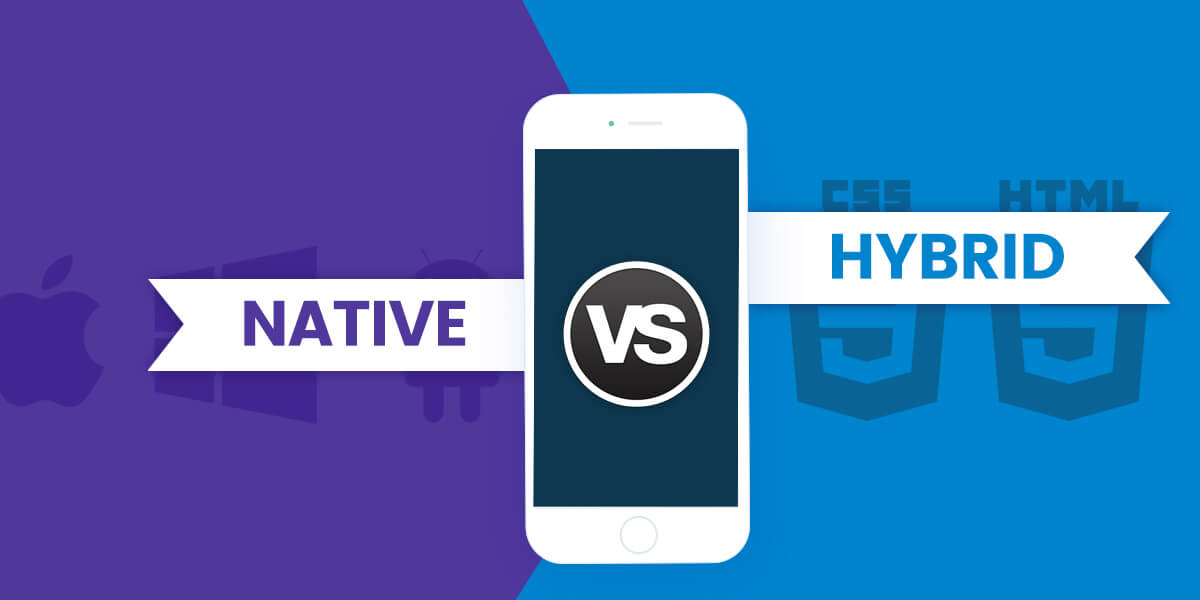Is your mobile app strategy aligned with your business goals—or is your tech choice holding you back? For startups and enterprises alike, choosing between native and hybrid mobile app development can define user experience, budget efficiency, and long-term scalability. In 2025, where user expectations are higher and digital competition is fiercer than ever, understanding the technical and business implications of native vs hybrid apps is not optional—it’s essential.
This detailed guide unpacks the difference between native and hybrid apps, compares performance, cost, and user experience, and helps businesses make the right development choice.
Technical Differences Between Native and Hybrid Apps
Native apps are developed using platform-specific programming languages. For iOS [iOS App Development], developers typically use Swift or Objective-C; for Android [Android App Development], it’s Kotlin or Java. These apps are built using platform-approved development environments such as Xcode (for iOS) or Android Studio (for Android). Native apps are tailor-made for their respective operating systems and follow platform-specific guidelines, ensuring tight integration with device hardware and system features.
On the other hand, hybrid apps are built using web technologies like HTML, CSS, and JavaScript and are wrapped inside a native container using frameworks like React Native, Flutter, or Ionic. They allow developers to maintain a single codebase for both iOS and Android platforms, significantly reducing the development effort. However, because hybrid apps rely on plugins or third-party APIs to access device features, they often have limited or delayed access to the latest OS capabilities compared to native apps.
Speed and Performance: Native vs Hybrid Mobile Apps
Native apps consistently outperform hybrid apps when it comes to:
- Load speed
- Animation smoothness
- Complex UI transitions
- Access to native APIs
Hybrid apps have narrowed the gap with frameworks like Flutter and React Native, but real-time performance—such as gaming or live streaming—is still best handled natively.
Example: Instagram and WhatsApp run natively to ensure seamless real-time interactions, while smaller business apps often go hybrid to cut initial costs.
Bottom Line: In the battle of hybrid vs native app performance, native still wins for performance-critical use cases.
Cost of Native vs Hybrid App Development
Cost is one of the biggest factors driving the choice between native and hybrid app development. Native apps usually require two separate development efforts—one for iOS and another for Android—resulting in higher upfront investment and longer timelines. Maintenance and future updates also double in effort unless you have a unified cross-functional team.
In contrast, hybrid apps are cost-effective and quicker to deploy. A single development team can build and maintain the app for both platforms, which not only reduces expenses but also speeds up the time-to-market. For startups looking to validate their ideas or enterprises testing new markets, hybrid development can be an efficient solution.
However, hidden costs may arise in the long term if the app scales or requires platform-specific customizations. In such cases, businesses often find themselves rewriting hybrid apps in native languages later down the line.
Cost Insight for 2025:
Hiring a native app development company may cost more upfront but delivers stronger performance and deeper brand credibility. A hybrid app development company offers faster MVPs and reduced maintenance costs—ideal for early-stage startups or cost-sensitive businesses.
User Experience: Native or Hybrid—Which Is Better?
Users may not know the tech behind an app, but they feel the difference in:
- Responsiveness
- Design consistency
- Offline performance
- Glitches and crashes
Native apps follow platform-specific UI/UX guidelines (Material Design for Android, Human Interface for iOS), offering a seamless, intuitive experience.
Hybrid apps risk UI inconsistencies or slower navigation, but modern frameworks have improved UX considerably.
Verdict: For high-end UX and brand reputation, native is superior. For a functional, budget-friendly experience, hybrid gets the job done.
Business Impact of App Development Choices
Startups:
- Hybrid Advantage: Ideal for MVPs, quick testing, and cross-platform reach without high costs.
- Strategic Focus: “Test fast, iterate faster.” Save time and validate product-market fit.
Enterprises:
- Native Advantage: Perfect for custom enterprise workflows, security-heavy apps, or brand-critical platforms.
- Strategic Focus: “Invest for the long term.” Prioritize performance, scalability, and integration with enterprise systems.
Pros and Cons Summary
Pros and Cons of Native Apps:
- Top-tier performance and UX
- Full access to hardware and platform features
- Higher cost and longer development cycle
- Separate codebases for iOS and Android
Pros and Cons of Hybrid Apps:
- Faster development and reduced cost
- Single codebase for multiple platforms
- Performance limitations for complex apps
- Risk of inconsistent UI and plugin dependency
Native or Hybrid: Which Is Better for You?
Ask yourself:
- Do I need advanced animations or real-time features? → Go native.
- Do I want to launch fast and on a budget? → Go hybrid.
- Is user experience a core value of my brand? → Go native.
- Am I building an MVP to validate an idea? → Go hybrid.
In 2025, app development is no longer a one-size-fits-all decision. Choosing the right approach—native or hybrid—depends on your goals, users, and budget.
Also Read:
- Flutter App Development: Pros, Cons, and Use Cases
- Why React Native is the Best Choice for Cross-Platform Apps in 2025
- iOS vs Android App Development: Which Platform is Right for You?
- On-Demand App Development: The Future of Mobile Solutions
- Custom Mobile App Development: Benefits, Process, and Costs
- Top 10 Mobile App Development Companies in India (2025 Edition)
- How to Choose the Best Mobile App Development Company in 2025
Final Thoughts
Whether you partner with a native app development company for premium performance or a hybrid app development company for faster deployment, the key is aligning your tech decision with your business strategy.
Understanding the key factors in choosing between native and hybrid mobile apps can give your business the competitive edge it needs in the mobile-first era.
Need help deciding? Talk to experts who specialize in native vs hybrid app development and make the right investment for your startup or enterprise.
